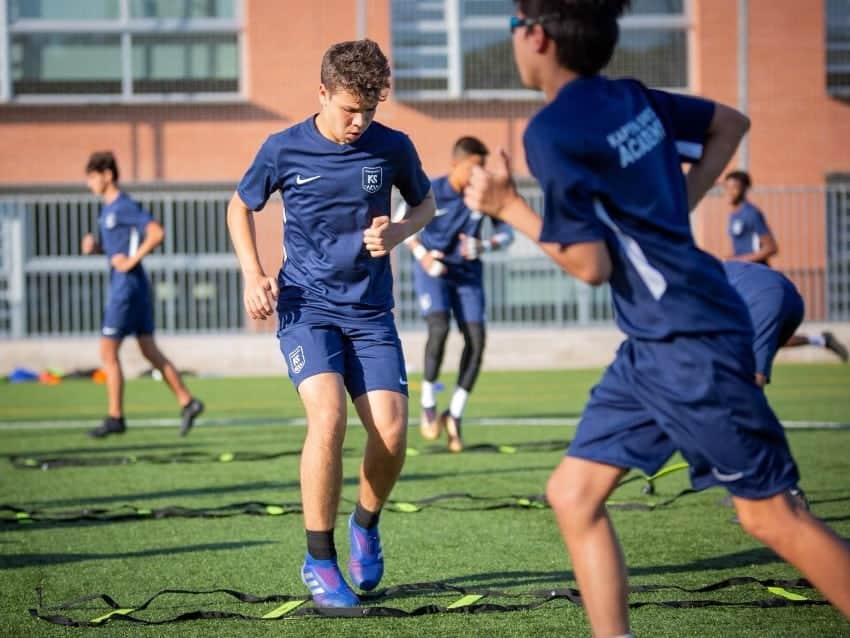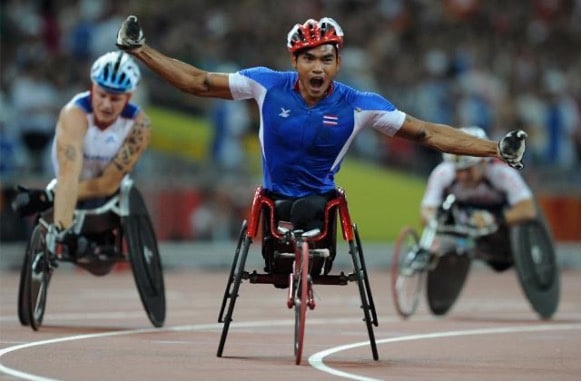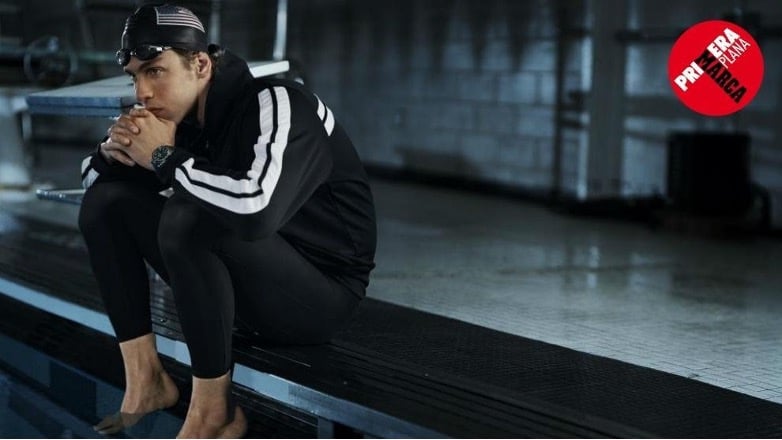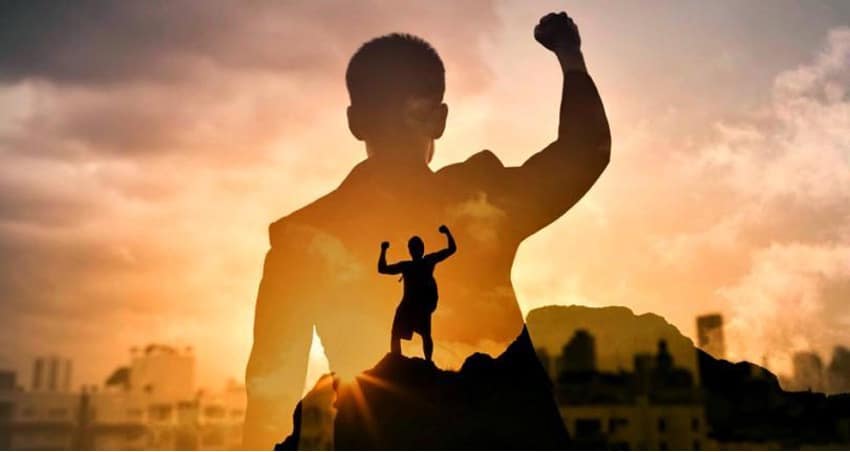24 de April de 2023
How to Build Mental Toughness in High School Athletes
Sport has many positive aspects for kids and teens, as well as for adults. However, when it’s elevated to a high level, the psychological state of people, especially teenagers, must be very well controlled. If it is already difficult to manage stress, fatigue, pressure, training and all the other situations of daily life for an adult, imagine how difficult it is for a child or adolescent. A characteristic of high performance athletes is their constancy, perseverance and fortitude in the face of hard training periods and the stress of competition. The mental fortitude that any elite athlete must have is very important for his or her professional and personal development.
This mental toughness is not only crucial for the athlete and their sport, but it is also a feature that divides in many occasions, to those who achieve success in multiple aspects of life. There is no doubt that athletes face a great deal of stress, both in competition and in other aspects of life. It is therefore transcendental that they work on a mental development that allows them to achieve sufficient mental strength to face any of the aspects mentioned above. In this week’s article we are going to analyze the objectives that any adolescent athlete should have, in order to be able to cope with this pressure and achieve a good mental strength. It depends on this to be able to overcome the pressure, develop their studies properly and achieve the sporting goals set at the beginning of the season.
On the other hand, we do not want to miss the opportunity to say that it is also very important that the professionals who work with these adolescent athletes are able to understand that they are dealing with people in development. Many coaches lack the knowledge and preparation to treat these athletes in the best possible way. From here we state that you should always count on qualified professionals and graduates in Physical Activity and Sport Sciences. Below, we list a series of important guidelines to follow, in order to achieve a good mental strength during adolescence.

Main Characteristics of a Great Mental Toughness
Positive Vibes
Firstly, in my opinion, the most important of all aspects to develop good mental toughness is to have a positive attitude. This may seem easy to say, but it’s difficult to accomplish. Despite what many may think, a positive attitude will be accomplished thanks to hard work and development.
There are people who, by nature, have a positive attitude towards certain aspects of life. Since we are born we are exposed to external stimuli that create our personality and our way of being. However, other people that due to the events lived, are one way or another. However, a positive attitude can be worked on. This is really important since the performance of a teenager athlete can depend on many occasions, on this positive attitude (1). To work on this positive attitude the athlete must focus on his strengths and weaknesses.
Once recognized and assimilated, they should work to enhance some of them and improve the others, but always with a positive attitude. All this is intrinsically related to self-esteem and self-perception. In fact, Lochbaum M. and colleagues found that a positive attitude and an improving confidence are determinants of performance (2).

Pressure under control
Secondly, performing under pressure is somehow complicated for human beings. Although our ancestors knew how to respond in times of extreme pressure (when they had to hunt, for example, or when they had to defend themselves against a predator), today we find it difficult to perform when we are under a lot of pressure. So much so that there are already studies that define stress as a health problem during adolescence (3). Moreover, unfortunately, all this was aggravated by the COVID-19 pandemic and is now becoming more visible (4).
As we can see, stress and pressure are two major factors which could lead to a decrease in the athlete’s performance both in competition and in their academic life. It is therefore of vital importance that adolescents learn to manage under pressure and have the tools to maintain good mental toughness. Adolescent athletes directly or indirectly feel pressure to win and to impress family, friends and coaches.
We have to work so that they do not feel that pressure and, if so, that they know how to control it. Among the many techniques to manage pressure and maintain good mental strength, we highlight visualization, attention control or controlled breathing (5). And not only that, but we must impose tasks that require decision-making under pressure, resolution of internal conflicts and acceptance of defeat. The role of the coach is key in this whole process and that is why we must have qualified professionals. In fact, it has been shown that the relationship between the coach and the athlete and the way they communicate is important for performance (6).

Set Realistic goals
Finally and in third place, there’s the realistic goal setting. For me, it is one of the most important things if we want to have good mental toughness. When we set goals that we can achieve, the athlete is focused on reaching that level. However, if the goals are over or underestimated the athlete begins to lose motivation or to be overwhelmed by the goal to be achieved and his mental toughness declines. We should not impose the goals we want to achieve as coaches but focus on the goals that the athlete can achieve.

For this, knowing the personal situation of the athlete specifically, is necessary since it’s not the same for the athlete to be in a high performance center as it is for him to live with his family in his native country. Likewise, it is not the same if the athlete is 10 years old or 16 years old. Setting ambitious goals during childhood can cause the athlete to “burn out” quickly and fail to achieve their personal best. In fact, there are many well- known cases where young stars are signed by big teams that have very high expectations and end up failing because they do not have enough mental toughness.
A great example of this mental toughness can be seen in the Williams sisters. The movie “King Richard”, based on real events that we highly recommend, shows the life of the two tennis players and exemplifies in a spectacular way, how a good mental strength promotes sporting success. Being focused, working out daily and fostering good mental toughness defines success or failure on many occasions.
How Difficult is to Achieve Mental Toughness?
Finding good mental toughness is said to be an easy task, but that’s just a lie. The easy thing is wanting to find it. The difficult work would be to let young people and teenagers understand that it is a key aspect of sports performance. It’s also more difficult for young athletes to believe that they need to work on mental toughness. However, indirectly as coaches we can work on that mental toughness by means of small adjustments within each planning. Finally, we are going to list some strategies that can make the athlete improve his mental toughness without realizing it.
One of the things that causes more pressure on athletes is competition. We are all aware that a competition makes anyone nervous and even more so when there are many expectations in that competition. If, for example, we have the Spanish championship in 6 months we shouldn’t be constantly talking about that competition but we can evade the athlete talking about smaller competitions that are closer. We can show him his improvements in the last quarter and focus on his best for the next quarter or we can set a short-term goal that “deletes” that competition from his mind.
On the other hand, referring to one of the best coaches of Spanish soccer, the key is to go “Match by match” or “Training by training”. Success is achieved when each training session is the most important competition. The training sessions are made to improve, and if we squeeze each training session to the maximum the improvement will be noticeable.

Last but not least, if you want to achieve a good mental toughness, you’ll have to maintain a healthy teamwork and a high quality cohesion between coach and athletes. Fostering a good team atmosphere and a life beyond training is crucial for good mental toughness. There is a saying that “What happens in the field stays in the field” and so it should. We must teach our athletes that if one day we don’t have a good training session, nothing happens. Life goes on, and the session will be better tomorrow. Support from both the coach and the environment fosters mental toughness. Having young athletes socialize will also promote good mental toughness in the long run.
Conclusion
To summarize, mental toughness is a very important skill for young athletes who want to achieve success in their sport. We can define mental toughness as the ability to stay focused and positive, even in difficult situations. To develop this skill, there are tools that we as coaches must provide to athletes. Among them we highlight:
- Having a positive attitude.
- Control pressure.
- Establish realistic goals.
Finally, it is essential that there is a great working environment with unity among all members of the group and with the coach himself. In the same way, athletes should focus on the daily tasks and not be wrongly focused on the competition. By following these practical tips, young athletes will be able to develop their mental strength and deal effectively with competition.
Unai Adrián Perez de Arrilucea Le Floc’h
Bibliographical References
- Pensgaard, A.M., & Roberts, G.C. (2002). The relationship between motivational climate, perceived ability and sources of distress among elite athletes. Journal of Sports Sciences, 20(11), 879-891.1. Crust L, Clough PJ. Developing mental toughness: From research to practice. Journal of Sport Psychology in Action. 2011;2(1):21-32.
- Lochbaum M, Sherburn M, Sisneros C, Cooper S, Lane AM, Terry PC. Revisiting the Self-Confidence and Sport Performance Relationship: A Systematic Review with Meta-Analysis. International Journal of Environmental Research and Public Health. 2022;19(11):6381.
- Barraza-Sánchez BE, Pelcastre-Neri A, Mario DM, Hermenegildo AYI, Ledezma JCR. El estrés como problema de salud durante la adolescencia. Educación y Salud Boletín Científico Instituto de Ciencias de la Salud Universidad Autónoma del Estado de Hidalgo. 2019;8(15):273-6.
- Reyes N, Trujillo P. Ansiedad, estrés e ira: el impacto del COVID-19 en la salud mental de estudiantes universitarios. Investigación y desarrollo. 2021;13(1):6-14.
- Chang MO, Peralta AO, de Corcho OJP. Training with cognitive behavioral techniques for the control of precompetitive anxiety. International Journal of Health and Medical Sciences. 2020;3(1):29-34.
- Choi H, Jeong Y, Kim S-K. The Relationship between coaching behavior and athlete burnout: mediating effects of communication and the coach–athlete relationship. International journal of environmental research and public health. 2020;17(22):8618.

